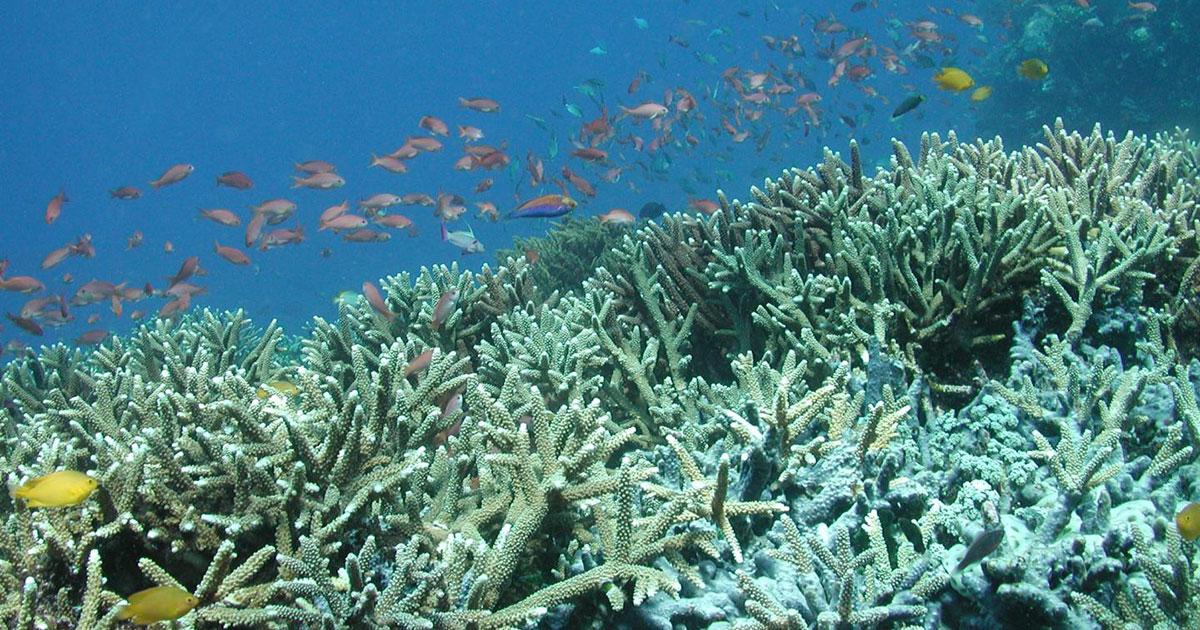If it hasn’t been clear from the weather recently, climate change is altering our natural seasons, causing polar vortexes across North America and record-breaking heatwaves across Australia. And now, a recent study has found that life below the surface of the ocean is also just as affected by the increasing frequency of heatwaves.
The paper, published in Nature Climate Change and led by Dr Dan Smale of the Marine Biological Association, UK, involved scientists from nineteen institutions spanning across seven different countries. Using the defined framework of classification for a marine heatwave as ‘where daily sea-surface temperatures exceed a local seasonal threshold for at least five consecutive days’, the group were able to quantify trends of all ocean basins and their biological impacts on species and ecosystems.
Marine heatwaves are caused by a range of processes from air-sea heat fluctuations in localised areas to large scale drives such as the El Nino Southern Oscillation, events which are only expected to intensify with future climate change. The study found that the total number of marine heatwave days per year has increased by 54% in the 1987-2016 instrumental record as opposed to the 1926-1954 record.
Long-term time series of three foundation species were also examined to see if marine heatwaves had any overall effects. Their data indicated that populations found in warmer areas are most likely to be affected by marine heatwaves, due to the high temperatures taking a species over its thermal tolerance. They discovered that the increased number of annual marine heatwaves intensified coral bleaching and reduced the density and biomass of kelps and seagrasses. This could have further effects on the wide variety of organisms that depend on these habitats for survival. Birds were also indirectly affected due to a reduction in prey availability.
Dr Smale, said, “The major concern is that the oceans have warmed significantly as a consequence of man-made climate change, so that marine heatwaves have become more frequent and will likely intensify over the coming decades. Just as atmospheric heatwaves can destroy crops, forests and animal populations, marine heatwaves can devastate ocean ecosystems”.
These marine heatwaves can also be damaging for humanity too with the benefits we receive from an ecosystem being altered and therefore causing major societal changes. Across the globe, over three billion people depend on the ocean as a source of income and food. It has been predicted that heatwaves may lower fishing productivity from affected ecosystems, a problem which will need to be managed and mitigated to help these societies absorb any future impacts.
Story by Caitlin Taylor-Robinson.
Article reference:
Smale D, Wernberg T, Oliver E.J, Thomsen M, Harvey B.P, Straub SC, Burrows M.T, Alexander Benthuysen J.A, Donat M.G, Feng M, Hobday A.J, Perkins-Kirkpatrick S.E, Scannell H.A, Sen Gupta A, Payne B.L, Moore P.J. (2019) Marine heatwaves threaten global biodiversity and the provision of ecosystem services. Nature climate change. https://doi.org/10.1038/s41558-019-0412-1
Acknowledgements:
Concepts and analyses were developed during three workshops organized by an international working group on marine heatwaves. Workshops were primarily funded by a University of Western Australia Research Collaboration Award to T.W. and a Natural Environment Research Council (UK) International Opportunity Fund awarded to D.A.S. (NE/N00678X/1). D.A.S. is supported by an Independent Research Fellowship (NE/K008439/1) awarded by the Natural Environment Research Council (UK). The Australian Research Council supported T.W. (FT110100174 and DP170100023), E.C.J.O. (CE110001028) and M.G.D. (DE150100456). N.J.H. and L.V.A. are supported by the ARC Centre of Excellence for Climate Extremes (CE170100023). M.S.T was supported by the Brian Mason Trust. P.J.M. is supported by a Marie Curie Career Integration Grant (PCIG10-GA-2011–303685) and a Natural Environment Research Council (UK) Grant (NE/J024082/1). S.C.S. was supported by an Australian Government RTP Scholarship.



